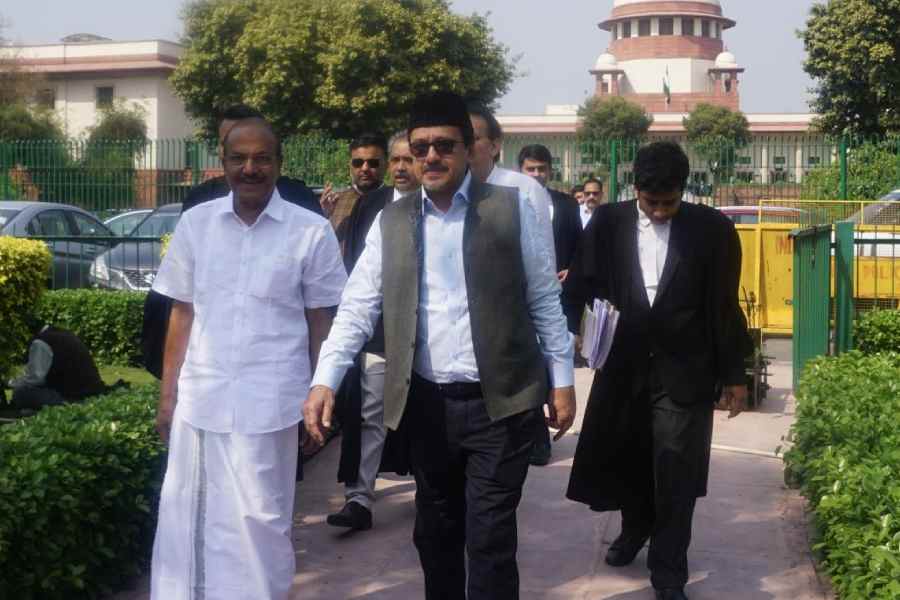The Supreme Court on Tuesday refused to stay the implementation of the Citizenship Amendment Act rules that came into effect on March 11, but told the petitioners that the Centre was yet to put in place “infrastructure” to carry out the process.
“But the infrastructure of the State... committee, etc, is not even in place,” Chief Justice of India D.Y. Chandrachud told senior advocates Kapil Sibal and Indira Jaising, appearing for the Indian Union Muslim League (IUML) and several others during the hearing.
The bench, which included Justices J.B. Pardiwala and Manoj Misra, made the observation after the senior counsel repeatedly urged the bench to stay the implementation of the rules on the ground that if citizenship is granted, it would become “irreversible”.
Jaising pleaded that the court at least make an observation that the grant of citizenship would be subject to the final adjudication of the batch of petitions, prompting the CJI to remark that the infrastructure was not even ready for the implementation of the CAA.
Solicitor-general Tushar Mehta, appearing for the Centre, informed the bench that “three tiers” were being created to examine the grant of citizenship under the rules, seeking to make it clear that applications for citizenship have to be first cleared at the district level, thereafter at the state level and finally at the central government level.
The apex court was dealing with a batch of 236 petitions and applications challenging the Citizenship Amendment Act, 2019. The act fast-tracks the grant of citizenship to non-Muslims from Pakistan, Bangladesh and Afghanistan.
The rules relating to the act were notified in the gazette by the Centre on March 11, ahead of the general election.
When Sibal said “if something happens (grant of citizenship), we will move the court”, the CJI again reassured him, saying: “We are here.”
Senior advocate Sidharth Luthra strongly opposed the central government’s plea for four weeks to file replies to the application for stay. Luthra told the bench that the petitions were filed in 2020 and there was no justification for the Centre to seek such a long time.
The bench said it would grant only three weeks to the Centre to file its reply and posted the matter to April 9.
Senior advocate Vijay Hansaria, appearing for some tribal groups, complained that the CAA would encourage large-scale illegal entry into Assam and other parts of the Northeast, although certain tribal areas spread over seven districts of Assam had been excluded from the ambit of the act.
Advocate Nizam Pasha, representing the AIMIM, said the CAA was biased against Muslims. Mehta countered the argument, calling it “misapprehension”.










